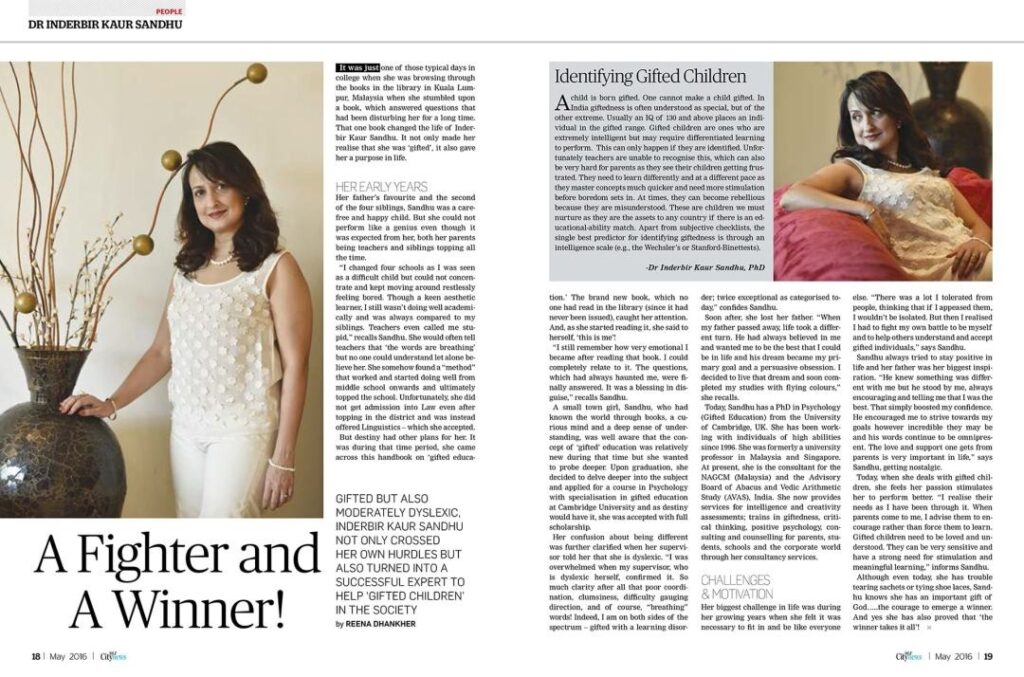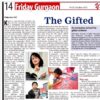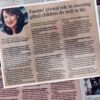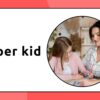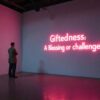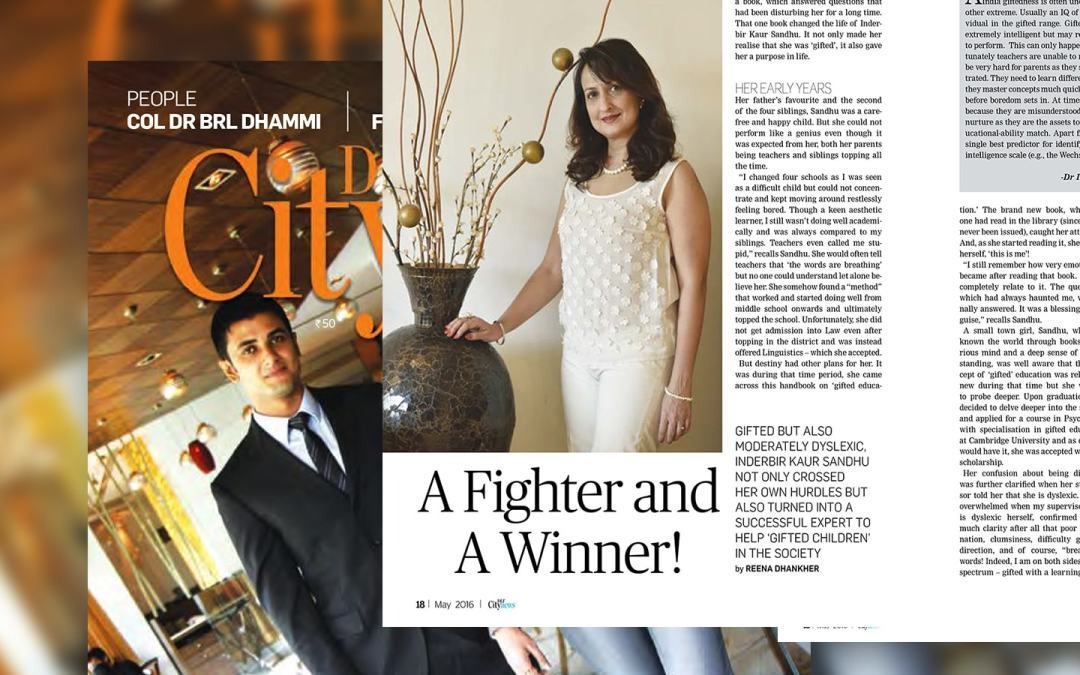It was just one of those typical days in college when she was browsing through the books in the library in Kuala Lumpur, Malaysia, when she stumbled upon a book which answered questions that had been disturbing her for a long time. That one book changed the life of Inderbir Kaur Sandhu. It not only made her realise that she was “gifted”, but it also gave her a purpose in life.
HER EARLY YEARS
Her father’s favourite and the second of the four siblings, Sandhu was a carefree and happy child. But she could not perform like a genius, even though it was expected of her, given that both her parents were teachers and her siblings consistently topped the charts.
“I changed four schools as I was seen as a difficult child, but I could not concentrate and kept moving around restlessly, feeling bored. Although I was a keen aesthetic learner, I still wasn’t performing well academically and was often compared to my siblings. Teachers even called me stupid,” recalls Sandhu. She would often tell teachers that “the words are breathing, but no one could understand, let alone believe her. She somehow found a “method” that worked and started doing well from middle school onwards and ultimately topped the school. Unfortunately, she did not get admission into Law, even after topping in the district, and was instead offered Linguistics, which she accepted. But destiny had other plans for her. It was during that time period that she came across this handbook on ‘gifted education.
Gifted But Also Moderately Dyslexic, Inderbir Kaur Sandhu Not Only Crossed Her Hurdles But Also Became A Successful Expert To Help ‘Gifted Children’ In The Society. By REENA DHANKHER Identifying Gifted Children.
The child is born gifted. One cannot make a child gifted. In India, giftedness is often understood as special, but at the other extreme. Usually, an IQ of 130 and above places an individual in the gifted range. Gifted children are those who possess exceptional intelligence but may require differentiated learning to reach their full potential. This can only happen if they are identified. Unfortunately, teachers are unable to recognise this, which can also be very hard for parents as they see their children getting frustrated. They need to learn differently and at a different pace, as they master concepts much quicker and need more stimulation before boredom sets in. At times, they can become rebellious because they are misunderstood. These are children we must nurture, as they are the assets to any country if there is an educational-ability match. Apart from subjective checklists, the single best predictor for identifying giftedness is through an intelligence scale (e.g., the Wechsler’s or Stanford-Binettests).
-Dr Inderbir Kaur Sandhu, PhD tion. The brand-new book, which no one had read in the library (since it had never been issued), caught her attention. And, as she started reading it, she said to herself, “This is me. “I still remember how very emotional I became after reading that book. I could completely relate to it. The questions, which had always haunted me, were finally answered. It was a blessing in disguise,” recalls Sandhu.
A small-town girl, Sandhu, who had known the world through books, a curious mind, and a deep sense of understanding, was well aware that the concept of gifted education was relatively new during that time, but she wanted. to probe deeper. Upon graduation, she decided to delve deeper into the subject and applied for a course in Psychology with a specialisation in gifted education at Cambridge University. As fate would have it, she was accepted with a full scholarship.
Her confusion about being different was further clarified when her supervisor told her that she is dyslexic. “I was overwhelmed when my supervisor, who is dyslexic herself, confirmed it. So much clarity after all that poor coordination, nation, clumsiness, difficulty gauging
direction, and of course, “breathing” words! Indeed, I am on both sides of the spectrum, gifted with a learning disorder, twice exceptional as categorised today,” confides Sandhu.
Soon after, she lost her father. “When my father passed away, life took a different turn. He had always believed in me and wanted me to be the best I could be in life; his dream became my primary goal and a persuasive obsession. I decided to live that dream and soon completed my studies with flying colours.”
She recalls.
Today, Sandhu has a PhD in Psychology (Gifted Education) from the University of Cambridge, UK. She has been working with individuals of high abilities since 1996. She was formerly a university professor in Malaysia and Singapore. Currently, she serves as a consultant for the NAGCM (Malaysia) and the Advisory Board of Abacus and Vedic Arithmetic Study (AVAS), India. She now provides services for intelligence and creativity assessments, trains in giftedness, critical thinking, and offers positive psychology consulting and counselling for parents, students, schools, and the corporate world through her consultancy services.
CHALLENGES & MOTIVATION
Her biggest challenge in life was during her growing years when she felt it was necessary to fit in and be like everyone
else. “There was a lot I tolerated from people, thinking that if I appeased them, I wouldn’t be isolated. But then I realised I had to fight my own battle to be myself and to help others understand and accept gifted individuals,” says Sandhu.
Sandhu always tried to stay positive in life, and her father was her biggest inspiration. “He knew something was different with me, but he stood by me, always encouraging and telling me that I was the best. That simply boosted my confidence. He encouraged me to strive towards my goals, however incredible they may be, and his words continue to be omnipresent. The love and support one gets from parents is very important in life,” says Sandhu, getting nostalgic.
Today, when she deals with gifted children, she feels her passion stimulates her to perform better. “I realise their needs as I have been through it. When parents come to me, I advise them to encourage rather than force them to learn. Gifted children need to be loved and understood. They can be susceptible and have a strong need for stimulation and meaningful learning,” informs Sandhu. Although she still struggles with tasks like tearing sachets or tying shoe laces today, Sandhu knows she has a gift from God – the courage to emerge a winner. And yes, she has also proved that “the winner takes it all!
